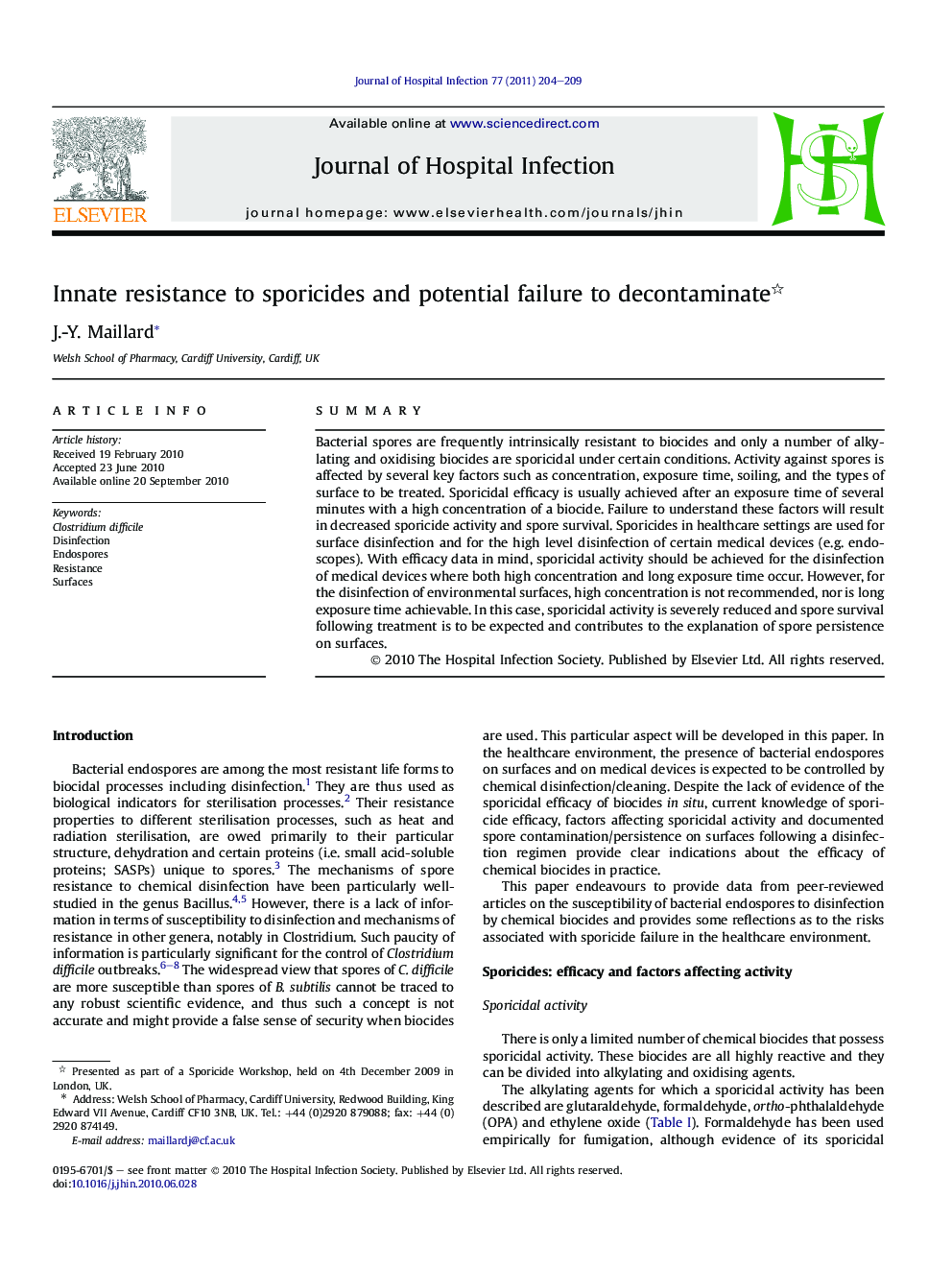| کد مقاله | کد نشریه | سال انتشار | مقاله انگلیسی | نسخه تمام متن |
|---|---|---|---|---|
| 6122484 | 1219256 | 2011 | 6 صفحه PDF | دانلود رایگان |
عنوان انگلیسی مقاله ISI
Innate resistance to sporicides and potential failure to decontaminate
دانلود مقاله + سفارش ترجمه
دانلود مقاله ISI انگلیسی
رایگان برای ایرانیان
کلمات کلیدی
موضوعات مرتبط
علوم زیستی و بیوفناوری
ایمنی شناسی و میکروب شناسی
میکروبیولوژی و بیوتکنولوژی کاربردی
پیش نمایش صفحه اول مقاله

چکیده انگلیسی
Bacterial spores are frequently intrinsically resistant to biocides and only a number of alkylating and oxidising biocides are sporicidal under certain conditions. Activity against spores is affected by several key factors such as concentration, exposure time, soiling, and the types of surface to be treated. Sporicidal efficacy is usually achieved after an exposure time of several minutes with a high concentration of a biocide. Failure to understand these factors will result in decreased sporicide activity and spore survival. Sporicides in healthcare settings are used for surface disinfection and for the high level disinfection of certain medical devices (e.g. endoscopes). With efficacy data in mind, sporicidal activity should be achieved for the disinfection of medical devices where both high concentration and long exposure time occur. However, for the disinfection of environmental surfaces, high concentration is not recommended, nor is long exposure time achievable. In this case, sporicidal activity is severely reduced and spore survival following treatment is to be expected and contributes to the explanation of spore persistence on surfaces.
ناشر
Database: Elsevier - ScienceDirect (ساینس دایرکت)
Journal: Journal of Hospital Infection - Volume 77, Issue 3, March 2011, Pages 204-209
Journal: Journal of Hospital Infection - Volume 77, Issue 3, March 2011, Pages 204-209
نویسندگان
J.-Y. Maillard,